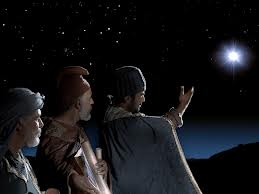 I was in a mom's group meeting at our parish the other day. I do this as a sort of chaplain for their group — and I questioned a few about what customs or practices they have for Advent and Christmas.
I was in a mom's group meeting at our parish the other day. I do this as a sort of chaplain for their group — and I questioned a few about what customs or practices they have for Advent and Christmas.
One mom said that she used to receive ‘spiritual bouquets’ from her children, and she loved that practice when her kiddos were younger. She recommended it today.
“What are spiritual bouquets?” another woman asked. They are promises that the child (or any other person of any age) will offer some number of rosaries or other sweet spiritual gifts for the recipient. These could be visits to Jesus in the church or at Adoration. It could be something given up (like sweets for a week or all of Advent), etc.
Another woman talked about how they used to do the Jesse Tree. A Jesse Tree originated out of Europe in the middle ages. It can be just a branch (which, by the way, has a nice symbolism itself), or it could be a tree of any size. On it are hung hand-made ornaments which represent Old Testament symbols of the history and the preparation for the coming of the Messiah. It could start with a sun representing God’s act of creation, then an apple (like from the fall of Adam and Eve). It could have an ark representing the time of Noah, etc. You can find lots of ideas in Advent craft books or online.
In this mom’s group setting, I inquired about whether any did the Advent wreath with candles, or the movement of the three wise men, heading closer each day to the manger where Jesus would ultimately be displayed in the manger.
Okay - you get the idea. But something else has been put on my heart about all this.
To me, the interesting thing that came to mind was about practices that families did as individuals or as groups. But they were all focused on things to do or, as I said, about practices. What else came to me was this:
What To Give? Christ For Christmas.
What? What does that mean? It means that there can be no more perfect gift than to give Christ to someone else for Christmas or in the Epiphany Season. Christ brings with him the Gifts of the Spirit. And God’s graces.
The feast of manifestation, or Epiphany, is traditionally celebrated the 12th day after Christmas, January 6. In the dioceses of the United States this feast has been moved to the Sunday between January 2 and January 8.
Manifestation means that it is a tradition from Scripture in which the wise men came in recognition of the new king (the Messiah) that had come into this world. They recognized this by presenting special gifts.
Since ancient times, the Eastern Orthodox have celebrated both Christ’s birth and the magi’s coming on the same day. Our country and culture celebrates December 25 as Christmas. And then, in early January, we commemorate Epiphany as the visit of the distinguished gentiles bearing gifts for the Christ Child.
The custom of exchanging gifts at Christmas is rooted in that famous Epiphany event. Just as the wise men brought gifts to the baby Jesus as acts of worship and adoration, today, we give Christmas gifts to those we love and esteem. Epiphany gifts are related to this – yet different.
Traditionally, Epiphany gifts are seldom commercial gifts (toys, clothes, etc.). Instead – Epiphany gifts may include handmade items, or food, fruit – or in some practices, the giving of spiritual gifts. Christ gives abundantly to us the most precious, priceless and wondrous gifts. And the measure of our gratitude to Him, the measure of how well we use our gifts is how generously we share them with others.
Some years ago, I gave Epiphany cards to many friends. On one side was a lovely picture of Our Lady of the New Advent. This is an iconic depiction of Jesus blessing us from the womb of Mary. Thus, Jesus is a gift from Mary to us.
On the other side of the card was a spiritual gift that I (blindly) pulled from a pile of such cards. I prayed before pulling each person’s card as a spiritual gift. I didn’t look at the gift before pulling it. I expressed to the recipient that they would find it to be a unique, and Spirit-guided gift. And I wrote, "So it will be between you and the Holy Spirit to see if this gift comes about in the coming year in their life." I told the recipient that I would be praying for them and their gift. Each gift was biblically based, and they can include (among others) wisdom, understanding, counsel, fortitude, knowledge, piety and fear of the Lord. But you might add others based upon Scripture: gentleness, forgiveness, peace-making, etc. If you have time, include a reference to the gifts in Scripture or the Catechism.
This may sound like just another ‘practice.’ We Catholics like to have things to do. Crafts, projects, activities. But behind this is that we bring Christ (the Gift of the Father) to others. And we are giving Christ in ourselves.
What to give? Christ for Christmas!
Copyright 2013 Deacon Tom Fox
About the Author
Deacon Tom
Deacon Tom Fox and his wife Dee are co-hosts of the CATHOLIC VITAMINS Podcast for over 6 1/2 years. Tom has also been a member of the Catholic Mom columnists team for eight years, and was a regular contributor to the Catholic Moments Podcast for three years. Most recently, Deacon Tom has been leading a project to bring Catholic radio to the north central Arizona community where he and Dee reside. Blessings!


.png?width=1806&height=731&name=CatholicMom_hcfm_logo1_pos_871c_2728c%20(002).png)
Comments